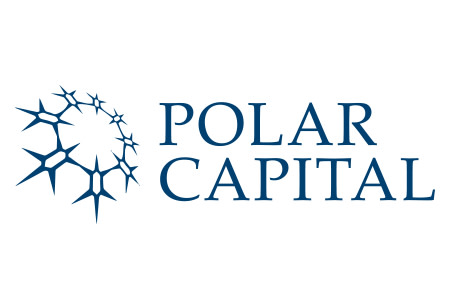The managers invest in companies they believe can benefit from some of the biggest technology trends globally.
The trust is backed by a well-resourced team with plenty of experience in the technology sector. Their focus on high-quality companies has delivered impressive long-term results, although past performance is not a guide to the future.
Over the last few years the fund has pivoted to be largely focused on the Artificial Intelligence (AI) theme.
How it fits in a portfolio
The Polar Capital Technology Trust aims to grow investors’ money over time by investing in next generation technology leaders, which the managers believe have great long-term potential. The managers invest in technology companies around the world, including some of the higher-risk emerging markets. Investing in a single sector like technology is a higher-risk approach compared to a more diversified one.
We think funds and investment trusts investing in a specific sector should usually only form a small part of a well-diversified investment portfolio. Investors in closed-ended funds should be aware the trust can trade at a discount or premium to the net asset value (NAV).
Manager
Ben Rogoff has been a technology specialist for 28 years and became lead manager on the technology trust in 2006. Over this time, he’s helped build the technology team to eight members, one of the largest sector investment teams in Europe.
Rogoff is also supported by Alastair Unwin, who joined Polar Capital’s technology team in 2019. Unwin has worked closely with Rogoff since he joined and these efforts were formally recognised through a promotion to deputy manager. Unwin continues to provide support with stock selection, idea generation and challenge.
Rogoff and Unwin can also call upon the experience of their technology team for further support. Each member of the team has an area of expertise but have vast knowledge across the technology sector. The managers sit down with each analyst once a month to discuss their ideas and hold weekly team meetings to examine market trends, portfolio positioning and investment ideas.
Alongside the technology trust, Rogoff is also the lead manager of the open-ended Polar Capital Global Technology and Polar Capital Artificial Intelligence funds. We are comfortable he can manage his commitment to both the investment trust and funds.
Process
The avoidance of early-stage or blue-sky companies is a key part of the managers’ process. They don’t want the added risk and uncertainty from these businesses, so instead focus on companies they deem of highest quality.
They want to invest in companies that are in strong financial positions and which are run by experienced management teams. Each company must also have the potential to benefit from a technology trend or growth theme.
In addition, all companies are subjected to an “AI lens”. The managers believe that AI is the next general purpose technology, meaning that it will change the way companies work and everything else will revolve around it. As part of the research process, analysts must consider how each and every stock is impacted by AI.
Over the last few years the team have become increasingly excited about the opportunities that generative AI offers and over 90% of the portfolio is now focused on this theme. AI is a broad category and encompasses companies that enable AI technology (such as those making semiconductor chips or providing cloud computing services), AI beneficiaries (mainly technology companies) and AI adopters.
Typically, turnover in the trust is low, which means buying and selling is kept to a minimum. But, given the transformative potential of AI and recent share price volatility in the market, the managers have made a number of changes to the portfolio, increasing their holdings in stocks exposed to the generative AI theme, and decreasing holdings in stocks that are less exposed.
The most obvious of these stocks is NVIDIA. This has been a clear winner from AI, and the fund held a 10.4% position in the stock at the end of the financial year, up from 4.6% the previous year. The managers established new positions in some other semiconductor makers, such as Micron, as well as companies which are vital for AI to function, such as Broadcom. This latter develops and supplies semiconductor and infrastructure software solutions which are necessary for data transfer, storage and processing in AI systems.
The managers also made a series of investments in smaller Asian component and materials companies that they expect to play a more significant role in AI computing than they did during the Cloud era.
Over the period the managers also reduced their positions in stocks which are less involved in AI. For example, they sold some of their position in Apple which is suffering from a drop in demand for smartphones and is losing market share in China, but which also lacks any convincing AI narrative.
Given the nature of how the managers view the sector, they may invest in some of the higher-risk small and medium-sized companies, as well as companies in more volatile emerging economies. These positions could add risk. They also have the flexibility to use gearing (borrowing to invest) and derivatives which can magnify any gains or losses and increases risk. At the end of the trust’s financial year gearing was less than 2% of net asset value.
Culture
Polar Capital was founded in 2001 and prides itself on its collegiate culture. Each manager and investment team is afforded autonomy, allowing them to develop and apply their own investment process and philosophy.
Polar Capital also promotes a strong focus on shareholders' interests and ensures they align with those of fund managers. The managers see themselves as part owners of the trust and they may receive a bonus that can be deferred into shares of the trust over 3 years. This helps make sure the trust is run in a way that benefits all shareholders.
ESG Integration
Polar Capital’s investment teams are given the flexibility to integrate environmental, social and governance (ESG) considerations in a way that best fits their investment approach. The company also provides a range of centralised resources to help underpin the quality of ESG analysis across the firm, including third party ESG research and data. Fund managers frequently engage with the companies they invest in on a range of issues, including ESG-related issues like board make-up and remuneration criteria.
The fund managers themselves are responsible for proxy voting, and a summary of the firm’s overall voting activity can be found on Polar Capital’s website.
ESG issues have become increasingly prominent in recent years, and the Polar Capital Global Technology trust team believe technology companies have the potential to help alleviate some of these problems in the years to come. While the investment process is not driven by ESG factors, the managers focus on engaging with companies they invest in to help improve corporate behaviour and exclude those they feel are the worst offenders.
All Polar Capital funds and investment trusts exclude companies linked to the production or marketing of controversial weapons such as cluster munitions and antipersonnel mines.
Cost
The ongoing annual charge over the trust’s financial year to 30 April 2024, remained more or less flat at 0.80% compared to 0.81% the previous year. Investors should note the trust also has a performance fee, though this was not levied over the past year. Investors should refer to the latest annual report and accounts and Key Investor Information for details of the risks and charging structure.
If held in a SIPP or ISA the HL account charge of 0.45% (capped at £200 p.a. for a SIPP and £45 for an ISA) per annum also applies. Our account charge doesn't apply if held in a Fund and Share Account or a Junior ISA. As investment trusts trade like shares, both a buy and sell instruction will be subject to our share dealing charges within any HL account except online deals in a Junior ISA.
Performance
The trust has outperformed the broader technology sector significantly since it launched in 1996 but has fallen behind since Rogoff took control of the trust in May 2006*. Remember past performance is not a guide to the future. Investments can go down as well as up in value, so you could get back less than you invest.
Recent performance has been much better. Over the trust’s most recent financial year (to the end of April 2024), its NAV and share price rose 40.8% and 50.5%, respectively. This has been reflected in the impact on the trust’s discount, which over this period, narrowed from 13.4% to 7.4%. To put this in perspective, the average discount over the last 10 years (to 31/07/24) was 5.55%.
Whilst 2023 was all about the biggest technology stocks (the so-called “Magnificent 7”), the start of 2024 was a much more mixed story. Over the trust’s financial year as a whole, returns were dominated by the AI story. The managers’ decision to rotate the portfolio into AI stocks was the main reason for its outperformance. The trust’s holding in NVIDIA was helpful, with the stock rising an incredible amount that is unlikely to be repeated. Other stocks also helped performance though, particularly chipmakers like AMD and companies that benefitted from increased spending on data centres. Some of the ecommerce stocks that the trust holds, like Amazon, Netflix and Shopify also performed well.
Performance was helped by selling certain stocks that the managers didn’t think would benefit so much from the AI trend. Perhaps the best example of this was Apple. Whilst the managers still have a small position in the stock, it’s much less than the benchmark. Apple significantly underperformed the wider market over the year due to a slowing market for smartphones and limited AI use.
Annual percentage growth
31/07/2019 - 31/07/2020 | 31/07/2020 - 31/07/2021 | 31/07/2021 - 31/07/2022 | 31/07/2022 - 31/07/2023 | 31/07/2023 - 31/07/2024 | |
|---|---|---|---|---|---|
Polar Capital Technology Trust plc | 30.70 | 24.82 | -12.08 | 8.18 | 33.26 |
AIC Investment Trust - Technology & Technology Innovation | N/A | N/A | N/A | 0.96 | 13.83 |


